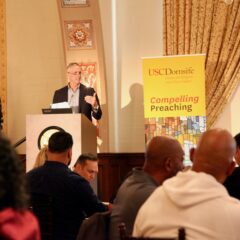According to a recent report from the Los Angeles Regional Foodbank, the number of people served by its affiliate food pantries, kitchens and shelters throughout Los Angeles County has increased 46% since 2005, and almost 9% just from Spring to Summer 2009 (for the full report click here).
- The study shows that 983,400 Los Angeles County residents received food assistance from food pantries, soup kitchens and shelters that were served by the LA County Regional Foodbank, which represents almost one out of every ten residents of LA County.
- Of this total, children represent 40% and seniors 5%.
- 48% percent of those served by these agencies reported having to choose between paying for food and paying for utilities or heat.
- 35% had to choose between paying for food and paying for medicine and medical care.
- Further, pointing up the continuing fragile state of the economy and the low wages many people are earning, 37% of the households being served by these agencies include at least one employed adult.
These are just a few of the sobering statistics in the report, and with no apparent end to the current economic downturn in sight (reports from some economists notwithstanding), these numbers could get worse before they get better.
Most of our projects at CRCC investigate how religious organizations are civically engaged, whether that means community organizing, as first responders in natural or human-made disasters, provision of social services, or in any number of other, similar activities. According to this report, the faith community is doing far more than its fair share of caring for the hungry in Los Angeles County, with 71% of food pantries, 50% of kitchens, and 30% of shelters being run by faith-based agencies affiliated with churches, mosques, synagogues, and other religious organizations. Whether people like it or not, feeding the hungry in Los Angeles remains the domain of faith-based organizations, which remain a crucial component of the fraying social safety net.
Richard Flory is the executive director of the USC Center for Religion and Civic Culture.





